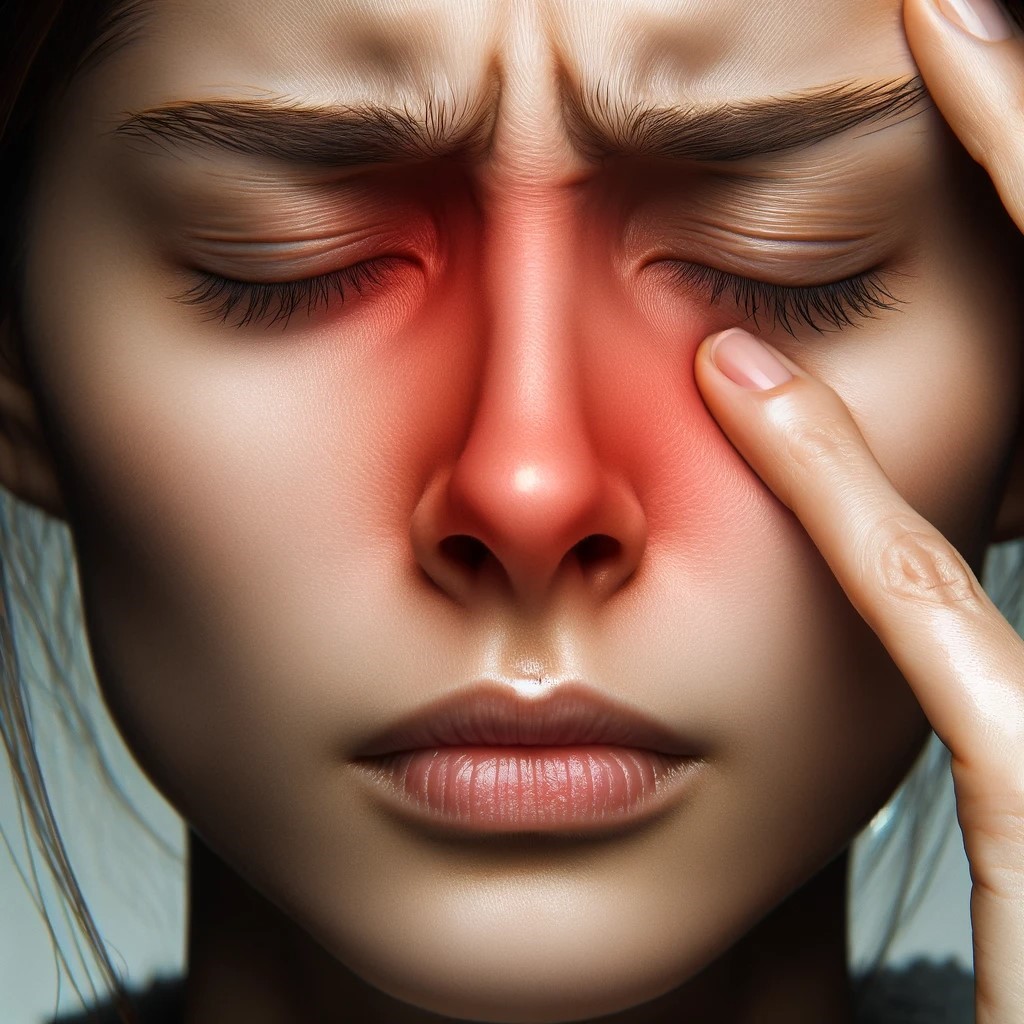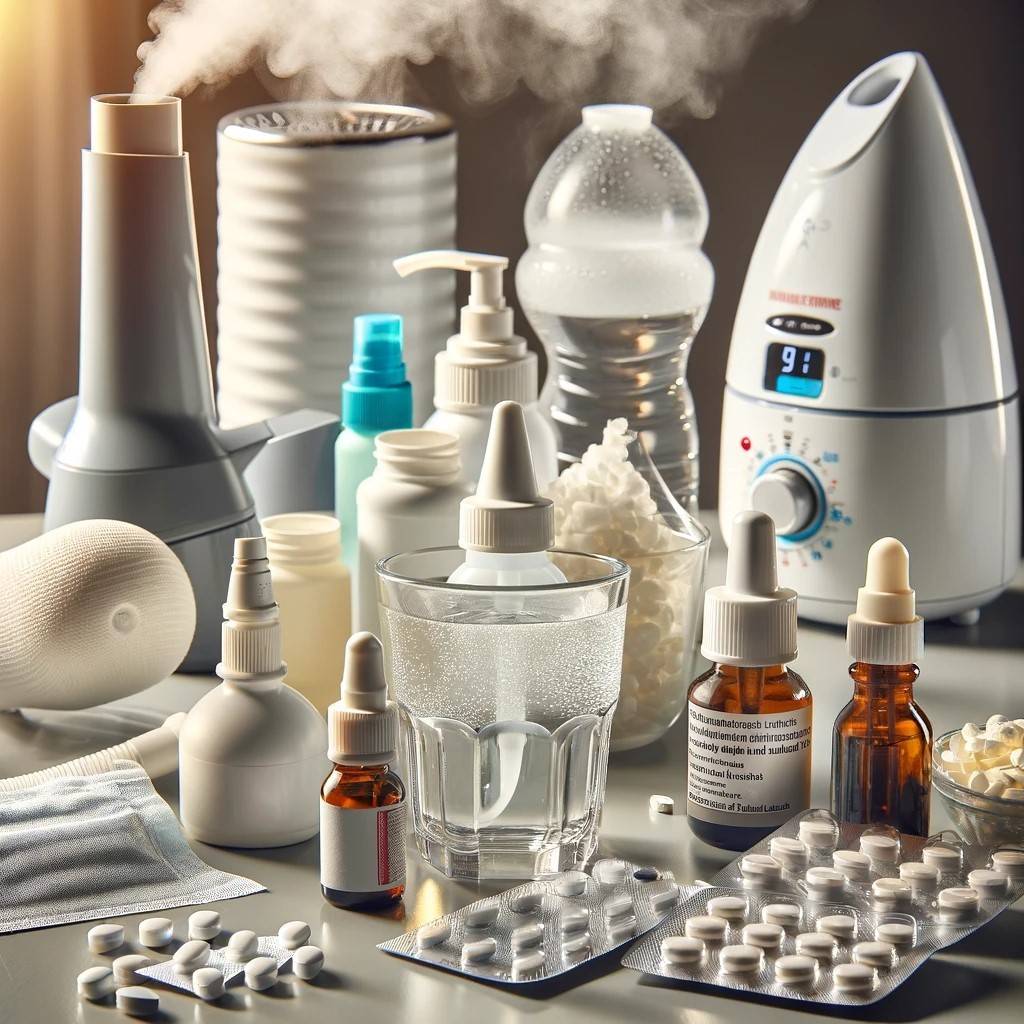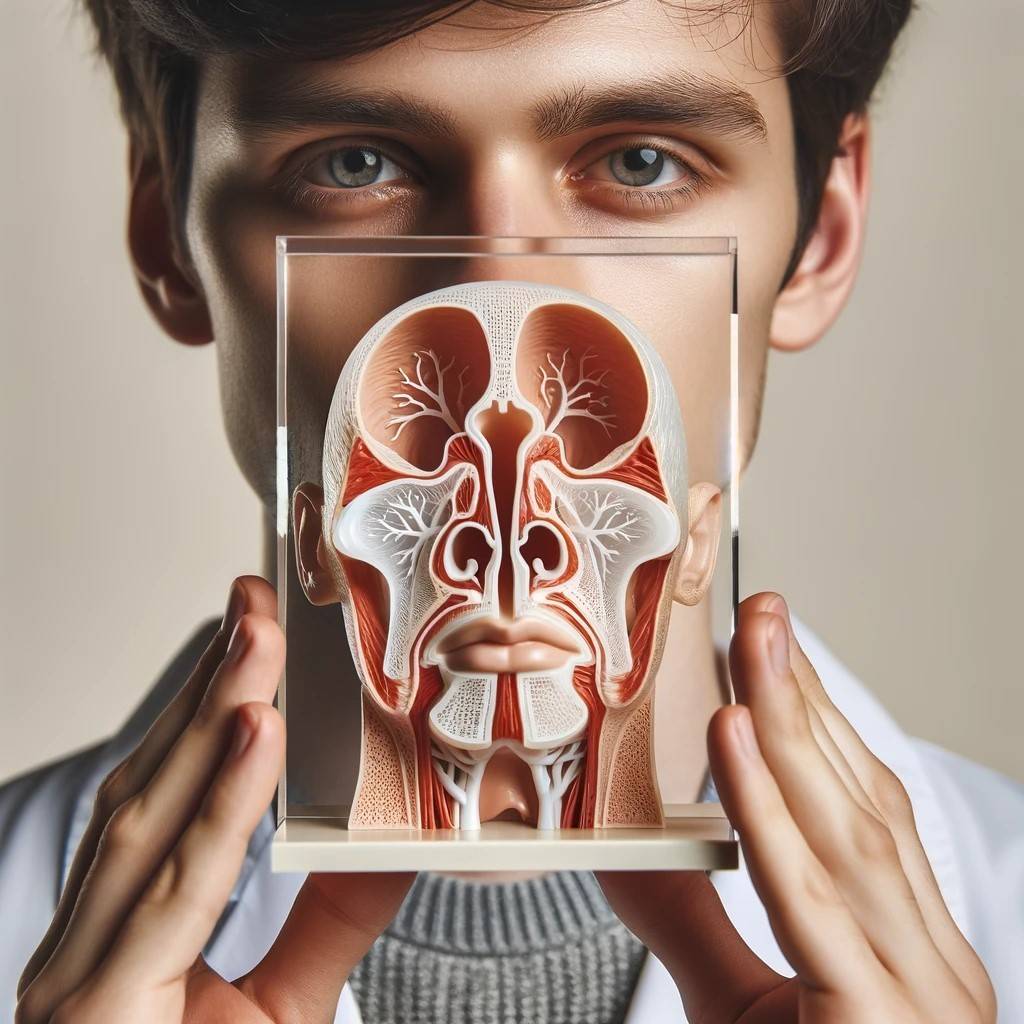Discover the symptoms and effective solutions for ‘Dry Sinus Infection Without Mucus.’ Learn how to find relief from this uncommon condition.
Introduction
Sinus infections, a nagging ailment disturbing the daily lives of many, typically bring to mind images of congestion and a nose running amok. However, there’s a lesser-known antagonist in the chronicles of sinus woes: the dry sinus infection without mucus. This condition, while lacking the hallmark signs of its mucus-filled counterpart, can still pack a punch with its unique set of symptoms and challenges.
Understanding Dry Sinus Infection Without Mucus
What is a Dry Sinus Infection?
Unlike a typical sinus infection that floods your nasal passages with mucus, a dry sinus infection is characterized by a lack of mucus and can lead to different discomfort. It’s as though the sinuses become a deserted landscape, arid and prone to irritation.
- Symptoms: May include a dry, stuffy nose, pain in the sinuses, and a feeling of pressure or fullness in the face.
- Comparison: Traditional sinus infections cause congestion and a runny nose; dry sinus infections do not.
Symptoms of Dry Sinus Infection Without Mucus

Recognizing the symptoms of a dry sinus infection can be tricky, as they often masquerade as mere dryness or a persistent headache. Here’s what to look for:
- Persistent dryness within the nasal passages
- Facial pain that worsens when bending forward
- Sinus pressure around the nose and eyes
- A sensation of fullness in the ears
- Headaches centred around the sinuses
- Difficulty breathing through the nose
Causes of Dry Sinus Infections
Dry sinus infections can arise from a myriad of sources, many of which are interwoven with our environments and habits:
- Environmental factors: Arid climates, pollution, and smoke can sap moisture from the sinuses.
- Lifestyle choices: Overuse of certain nasal sprays or medications can lead to dryness.
- Medical conditions: Autoimmune disorders or hormonal changes can affect mucus production.
By detailing these foundational elements of a dry sinus infection without mucus, we set the stage for a deeper exploration into diagnosis and treatment options. Remember, while this condition may be less discussed, its impact on quality of life is significant, warranting attention and care.
Diagnosing Dry Sinus Infection Without Mucus

The Diagnostic Process
When symptoms suggest a dry sinus infection, healthcare providers undertake a meticulous diagnostic process:
- Medical History: A thorough review of the patient’s medical history, including any recurring issues or environmental factors that could contribute to sinus dryness.
- Physical Examination: A detailed examination of the nasal passages, often using a nasal endoscope to get a clear view of the sinus openings.
- Imaging Tests: Occasionally, imaging tests like CT scans are employed to rule out other conditions and confirm the diagnosis of a dry sinus infection.
Table 1: Diagnostic Tools for Dry Sinus Infection Without Mucus
| Diagnostic Tool | Purpose |
| Medical History | To understand the background of the patient’s symptoms |
| Physical Examination | To inspect the nasal passages for signs of dryness |
| Imaging Tests | To provide a detailed view of the sinuses and rule out other issues |
Treatment and Management for Dry Sinus Infection Without Mucus

Overcoming the Dryness
Dealing with a dry sinus infection involves a mix of medical interventions and home remedies:
- Humidifiers: Using a humidifier to add moisture to the air can alleviate sinus dryness.
- Saline Sprays: Regular use of saline nasal sprays can help maintain nasal moisture.
- Hydration: Drinking plenty of fluids keeps the mucosal lining hydrated.
- Medications: In some cases, doctors may prescribe medications to treat the underlying causes of dryness.
Read also about: Understanding Blood in Mucus from Nose: Causes and Cures
Preventative Measures
Preventing the onset of a dry sinus infection is often about managing the environment and understanding one’s body:
- Avoid dry environments: Use humidifiers during dry seasons or in arid climates.
- Regular cleaning: Keep nasal passages clean with saline washes.
- Manage allergies: Stay on top of allergy treatments to prevent complications that could lead to sinus dryness.
List of Preventive Tips:
- Use a humidifier in dry indoor environments.
- Stay hydrated by drinking water throughout the day.
- Use saline nasal sprays to keep nasal passages moist.
- Avoid smoking and exposure to secondhand smoke.
- Treat allergies promptly and effectively.
As we delve into this treatment and management strategies, a proactive and informed approach can significantly alleviate the discomfort caused by a dry sinus infection without mucus. By tailoring a combination of these methods to their unique situations, individuals can regain comfort and prevent future occurrences.
Lifestyle Adjustments and Remedies
A key to managing and preventing dry sinus infections is through lifestyle adjustments. Here are some effective strategies:
- Diet: Incorporate spicy foods that can thin mucus and stimulate drainage, such as ginger or peppers.
- Smoke-Free Environment: Avoid environments with smoke, as it can irritate the sinuses.
- Balanced Humidity: Keep indoor humidity levels between 30-50% to prevent sinus drying.
Table 2: Lifestyle Adjustments for Managing Dry Sinus Infection
| Lifestyle Change | Benefit |
| Diet Alterations | Can promote mucus drainage |
| Smoke-Free Environment | Prevents further sinus irritation |
| Balanced Humidity | Maintains optimal sinus moisture |
Alternative Therapies
Some individuals find relief through alternative therapies:
- Acupuncture: This traditional Chinese medicine technique has been suggested to relieve sinus pressure.
- Steam Therapy: Inhaling steam can moisten the sinus passages and relieve discomfort.
- Essential Oils: Eucalyptus and peppermint oils in a diffuser may help by providing a soothing aroma and anti-inflammatory benefits.
When to See a Doctor
It’s important to consult a healthcare professional if:
- Symptoms persist for more than 10 days.
- There is a fever higher than 100.4°F (38°C).
- Symptoms are severe or worsening.
Conclusion and important points
To wrap up, dealing with a dry sinus infection without mucus requires a multifaceted approach. Staying hydrated, maintaining a moist environment, and considering the use of humidifiers and saline sprays can provide significant relief. For those who experience persistent or severe symptoms, seeking medical advice is crucial.
Key Takeaway Box
- Understand the Symptoms: Dryness, discomfort, and potential pain without the presence of mucus.
- Embrace Home Remedies: Use humidifiers, stay hydrated, and consider saline sprays.
- Seek Professional Help: If symptoms persist or worsen, consult a healthcare provider.
FAQs about Dry Sinus Infection Without Mucus
Could you have a sinus infection without mucus?
Yes, to have a sinus infection without mucus. This condition is often referred to as “dry sinus infection.” It can be characterized by sinus pain, a stuffy nose, and pressure without the typical congestion or runny nose.
How do you treat a dry sinus infection?
Treating a dry sinus infection typically involves soothing the irritated sinuses and alleviating the discomfort. Use a humidifier to add moisture to the air, drink plenty of fluids to stay hydrated, and use saline nasal sprays to keep the nasal passages moist. Over-the-counter pain relievers can also help with any discomfort. If these home remedies don’t help, it’s best to consult a doctor.
How do you unclog dry sinuses?
To unclog dry sinuses, try using a saline nasal spray several times a day to moisten and clear the nasal passages. Inhaling steam from a bowl of hot water or taking a hot shower can also help. Drinking hot fluids like tea or broth might provide relief as well.
Are dry sinuses bad?
Dry sinuses can be uncomfortable and may lead to complications like nosebleeds or infections if not managed properly. If you experience frequent dryness or discomfort in your sinuses, it’s an idea to seek medical advice to ensure there isn’t a more serious underlying issue.

Adel Galal is a health and wellness writer with over 30 years of experience studying and writing about health, fitness, nutrition, and healthy living. He is the founder of NextFitLife.com, where he shares practical, evidence-based guidance to support long-term health at any age. Adel’s mission is simple:
to help people make smarter health choices that fit real life, at any age.



